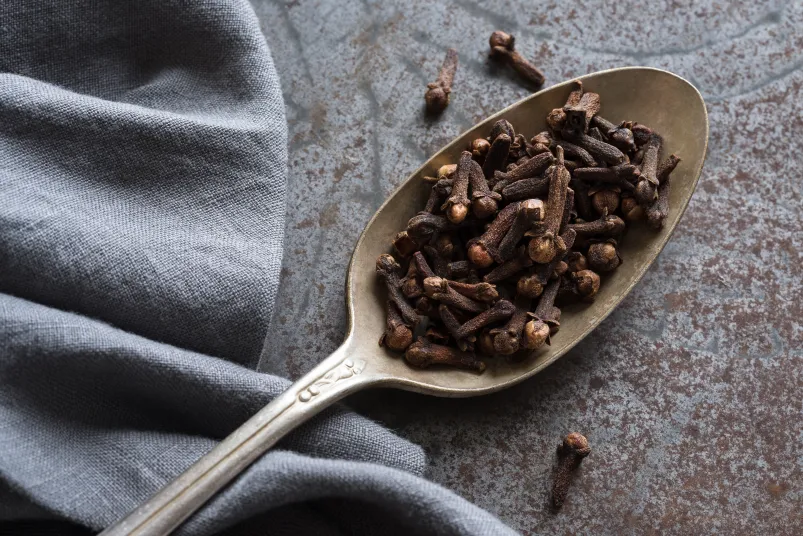High blood pressure, also known as hypertension, is a common condition that affects millions of people worldwide. It is often referred to as a “silent killer” because it can lead to serious health complications such as heart disease, stroke, and kidney damage if left untreated. As a result, many individuals are constantly seeking natural remedies and supplements to help manage their blood pressure levels. One such remedy that has gained attention in recent years is cloves.
Cloves are aromatic flower buds derived from the Syzygium aromaticum tree, native to Indonesia. They have been used for centuries in traditional medicine practices, particularly in Ayurveda and Chinese medicine, for their potential health benefits. Cloves are rich in antioxidants, vitamins, and minerals, making them a popular choice for various health concerns, including high blood pressure.
Understanding High Blood Pressure
Before delving into the potential benefits of cloves for reducing high blood pressure, it’s essential to understand what high blood pressure is and how it is typically managed.
Blood pressure is the force of blood pushing against the walls of arteries as the heart pumps it around the body. It is measured in millimeters of mercury (mmHg) and consists of two numbers:
1. Systolic Pressure: The top number, representing the pressure in the arteries when the heart beats.
2. Diastolic Pressure: The bottom number, representing the pressure in the arteries when the heart rests between beats.
A normal blood pressure reading is typically around 120/80 mmHg. However, readings consistently above this range may indicate hypertension, with stages classified as follows:
1. Elevated: Systolic between 120-129 mmHg and diastolic less than 80 mmHg.
2. Stage 1 Hypertension: Systolic between 130-139 mmHg or diastolic between 80-89 mmHg.
3. Stage 2 Hypertension: Systolic 140 mmHg or higher or diastolic 90 mmHg or higher.
The Potential Role of Cloves in Blood Pressure Management
Cloves contain several bioactive compounds that are believed to contribute to their potential health benefits, including eugenol, eugenol acetate, and flavonoids. These compounds have antioxidant and anti-inflammatory properties, which may play a role in cardiovascular health and blood pressure regulation.
1. Antioxidant Effects: Antioxidants help neutralize harmful free radicals in the body, reducing oxidative stress and inflammation. Chronic inflammation is associated with various health conditions, including hypertension.
2. Vasodilation: Some studies suggest that eugenol, a key compound in cloves, may help relax blood vessels, leading to vasodilation. This dilation of blood vessels can lower blood pressure by reducing the resistance to blood flow.
3. Blood Sugar Control: Cloves may also aid in blood sugar control, as elevated blood sugar levels can contribute to hypertension. By regulating blood sugar levels, cloves indirectly support cardiovascular health.
Scientific Evidence and Studies
While cloves have a long history of use in traditional medicine, scientific research on their specific effects on blood pressure is limited. However, several studies have explored the potential benefits of cloves and their components on cardiovascular health.
1. Animal Studies: Some animal studies have shown promising results regarding the cardiovascular effects of cloves. For example, a study published in the Journal of Cardiovascular Pharmacology observed that eugenol, a major component of cloves, exhibited antihypertensive effects in hypertensive rats by enhancing nitric oxide production and promoting vasodilation.
2. Human Studies: Limited human studies have investigated the effects of cloves on blood pressure directly. One small clinical trial involving diabetic patients found that consuming cloves daily for 30 days resulted in a significant decrease in systolic and diastolic blood pressure compared to a control group.
Incorporating Cloves into Your Diet
While more research is needed to fully understand the impact of cloves on blood pressure, they can be easily incorporated into your diet as a flavorful and aromatic spice. Here are some ways to add cloves to your meals:
1. Spice Blends: Use ground cloves in spice blends for curries, stews, and marinades.
2. Beverages: Add whole cloves to teas, mulled wine, or hot apple cider for a warming flavor.
3. Baked Goods: Include ground cloves in baked goods such as gingerbread cookies, pumpkin pie, or spiced cakes.
Considerations and Precautions
Before using cloves or any natural remedy for blood pressure management, it’s essential to consult with your healthcare provider, especially if you are taking medications or have underlying health conditions. While cloves are generally considered safe when consumed in culinary amounts, concentrated supplements or essential oils may have stronger effects and require caution.
In conclusion, cloves have the potential to contribute to blood pressure management due to their antioxidant, vasodilatory, and blood sugar-regulating properties. However, more research is needed to establish specific dosages, safety profiles, and long-term effects. Incorporating cloves into a balanced diet alongside other lifestyle modifications recommended by healthcare professionals can be a holistic approach to supporting cardiovascular health.


